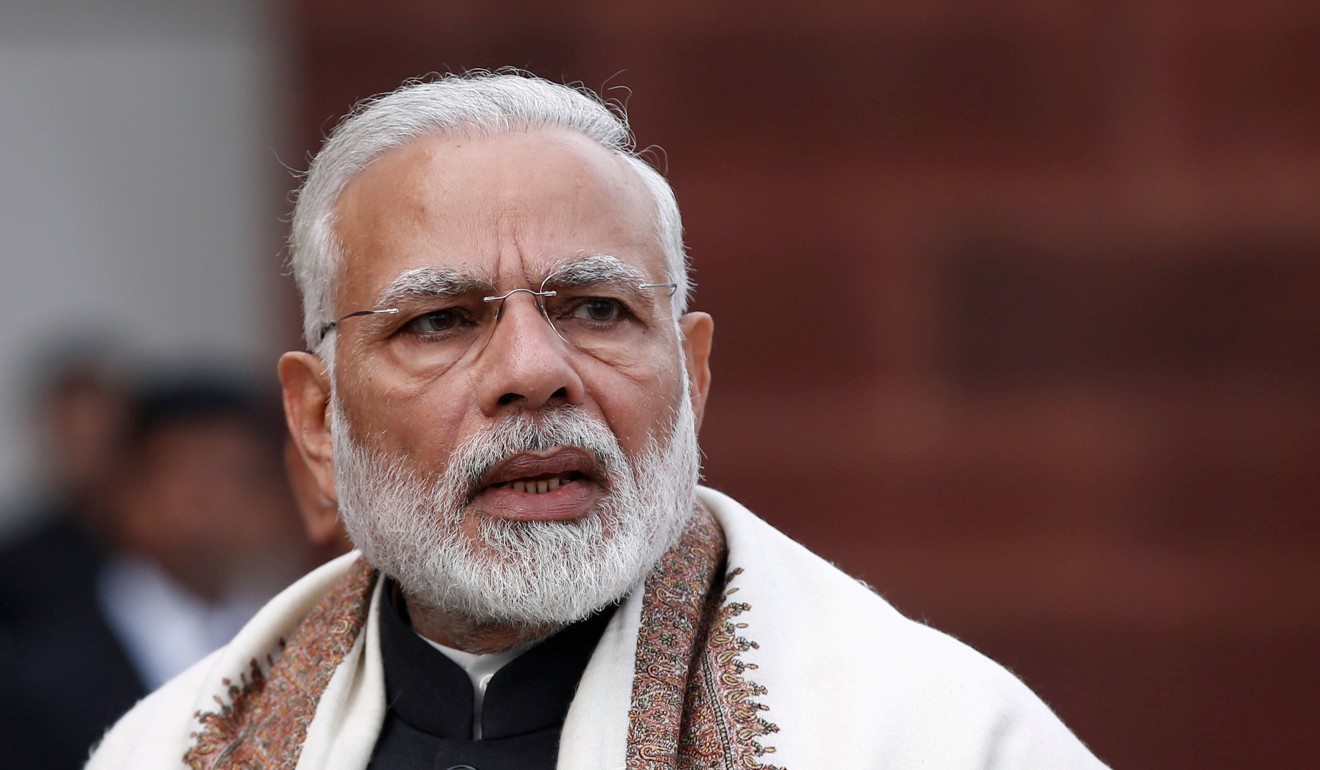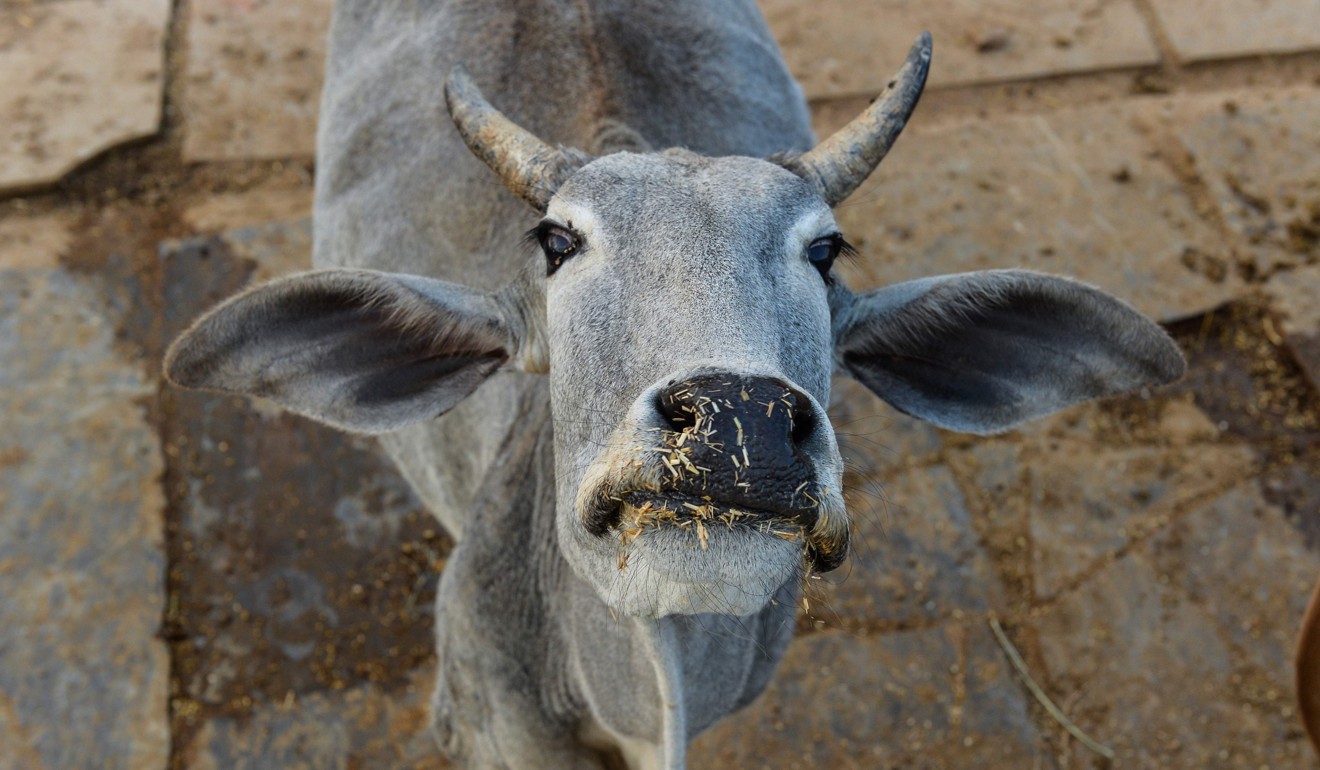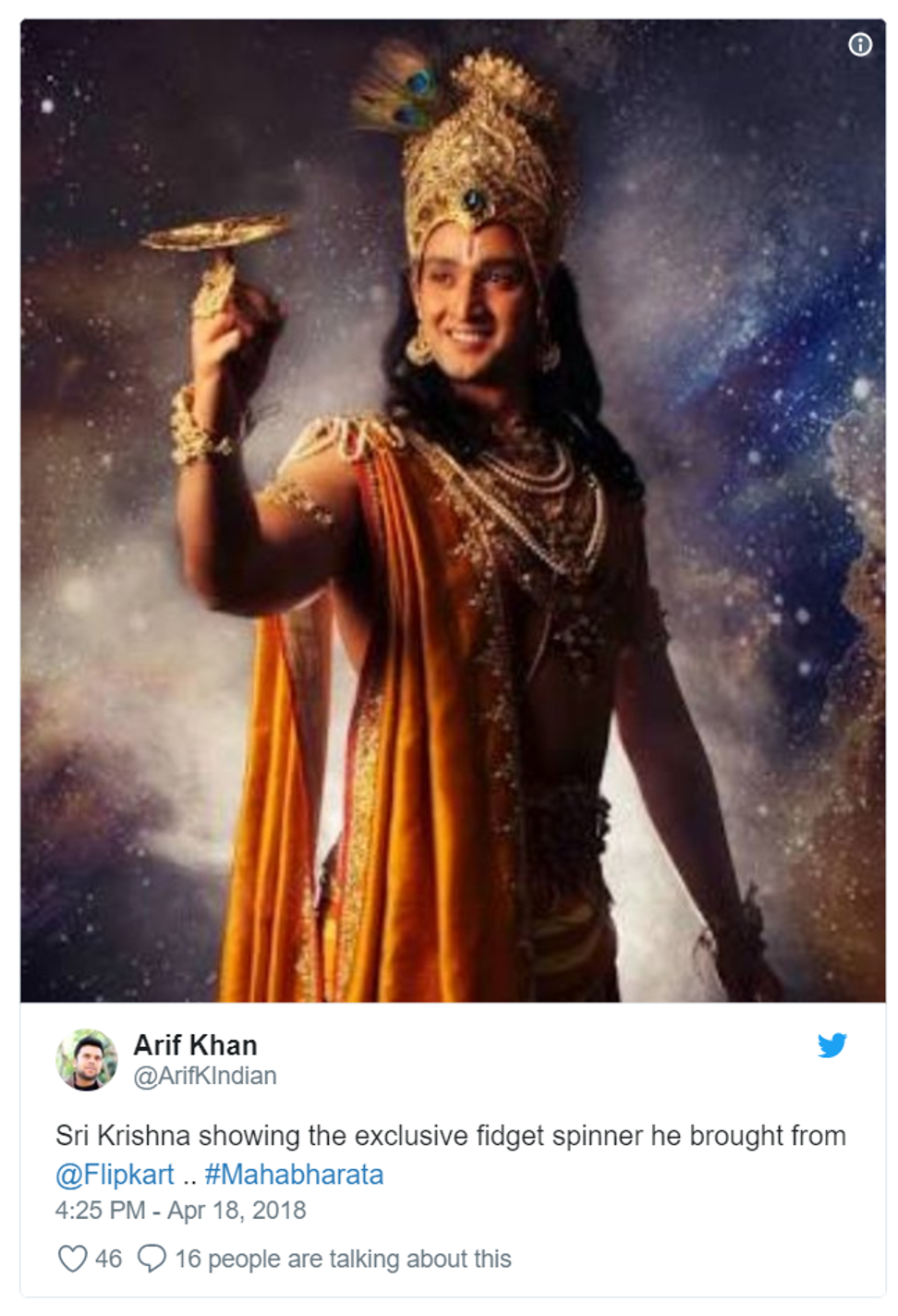
Did ancient Hindus surf the Web?
Many pushing for a Hindu state in India claim much of modern technology – from airplanes to plastic surgery – amounts to intellectual property theft from the faithful some 2,000 years ago
The latest offender is the newly elected chief minister of the tiny north-eastern state of Tripura, Biplab Deb, who cheerfully declared this week that Indians had invented the internet some two millennia ago. The proof of this particular hasty pudding, he insisted, lay in the fact that in the ancient epic Mahabharata, one of the characters, Sanjaya, was able to provide a detailed narrative to the blind king Dhritarashtra of a battle that was taking place many miles away. This proved, Deb averred, that in ancient times India had both satellite technology and the internet.

The ridicule was swift in coming. US historian Audrey Truschke, author of Aurangzeb: The Life and Legacy of India’s Most Controversial King, a biography of the Mughal emperor, asked wickedly why Sanjaya had bothered to narrate the story when he could have used Siri instead; why Lord Krishna hadn’t streamed the Bhagavad Gita (the sermon on duty that is part of the Mahabharata) on Facebook Live.
Another social media user hoped that ancient Indians had better bandwidth than their spectrum-starved descendants enjoy today. One said the longevity of the internet in India no doubt explained why the country had the largest number of trolls in the world. Another dubbed the ancient invention the “Indra-Net”, a reference to the Vedic god Indra, and said the ancient GPS was the God Positioning System.
How a rape exposes the conflict between two visions of India
The unfazed Deb remained defiant. “Narrow-minded people find it tough to believe this. They want to belittle their own nation and think highly of other countries,” he told the press. The political uses of his claim were never far from his mind; the Bharatiya Janata Party (BJP) has been pressing ancient “achievements” as an integral part of its hyper-nationalism.
India’s constitution calls for the promotion of “scientific temper, humanism, and the spirit of inquiry and reform” among the populace. This is the state’s responsibility, and also the constitutional duty of every citizen. India’s first prime minister, Jawaharlal Nehru, was a passionate advocate of science who argued that a scientific temper “is the temper of a free man”, and therefore indispensable in free India.

It seems such ideas are no longer fashionable in an India ruled by the BJP. Its leaders and acolytes are busy attempting to keep the theory of evolution out of school curricula, and insisting that the ancients had already discovered or invented every scientific accomplishment in the Vedic age, including jet aircraft and atomic weaponry.
The underlying message is that ancient India had all the answers, and that traditional and indigenous practices and ways of life are vastly better than imported modern scientific ideas.
India’s killer ‘godmen’ and their sacrificial children
The reverence for the past is integral to the ruling ideology since the promotion of a faith-based communal identity is central to the Hindutva project, and faith is seen as emerging from the timeless wisdom. Traditionalism benefits those who want to uphold the social order, ensure discipline and conformity and prevent radical change. Science and rationality threaten such conformism.
This is why the ruling dispensation’s political project of transforming secular India into a Hindu state requires the supremacy of religion over science, and the assimilation of science into the Hindutva project as merely something ancient India had had all along. Religion is no longer just a question of your personal beliefs; it is part of the assertion of a politics of identity built around faith. This requires an assault on science, since science challenges the established verities as religion does not.

Earlier this year, the BJP education minister of the Rajasthan province dealt science another body blow by claiming that the cow was the only animal that inhaled and exhaled oxygen. The veneration of the cow is something of an obsession for the BJP, whose followers have assaulted human beings in the name of cow protection, but this was a step too far even for many of its sympathisers.
Yet the claim was merely a reminder of the BJP’s allegiance to a total world view that embraces a larger political project that prescribes a set of beliefs incompatible with science, scepticism and inquiry.
No greater proof of this can be found than the prime minister himself. Modi likes to be portrayed as a technology-friendly 21st-century leader, but in 2014, he startled the world at the inauguration of a Mumbai hospital with the claim that the elephant-headed Hindu god Ganesh was proof of ancient India’s knowledge of plastic surgery. He went on to cite Mahabharata as proof that “people then were aware of genetic science”.

That the smallest imaginable elephant head cannot possibly fit into the largest available human neck does not appear to have occurred to Modi, whose statement discredited ancient India’s genuine scientific accomplishments. India was indeed the world pioneer in plastic surgery; it produced the world’s first known surgeon, Susruta, and archaeologists have found the world’s oldest surgical instruments (dating from the 1st century) in India. There is evidence for rhinoplasty operations in the ancient texts. But the moment these historical facts are subsumed in a narrative about mythological transplanted elephant heads, the actual facts are discredited.
Why the world needs to sit up and take notice of India’s war on meat
The disease is catching. Last year, a High Court judge told a television channel that India’s national bird, the peacock, “is a lifelong celibate” who “does not indulge in sex” but impregnates the peahen by shedding a tear. He cited Lord Krishna’s use of a peacock feather as proof of its celibacy.
The BJP is still bent on creating a Hindu state in India. Sadly, this would not be the kind of Hindu state that made India the scientific superpower of the ancient age, but one plunged into obscurantism and atavistic complacency. It is enough to make one shed a tear. One can only hope that there are no peahens around.
Shashi Tharoor is a member of the Indian Parliament and author of, most recently, ‘Why I am a Hindu’


